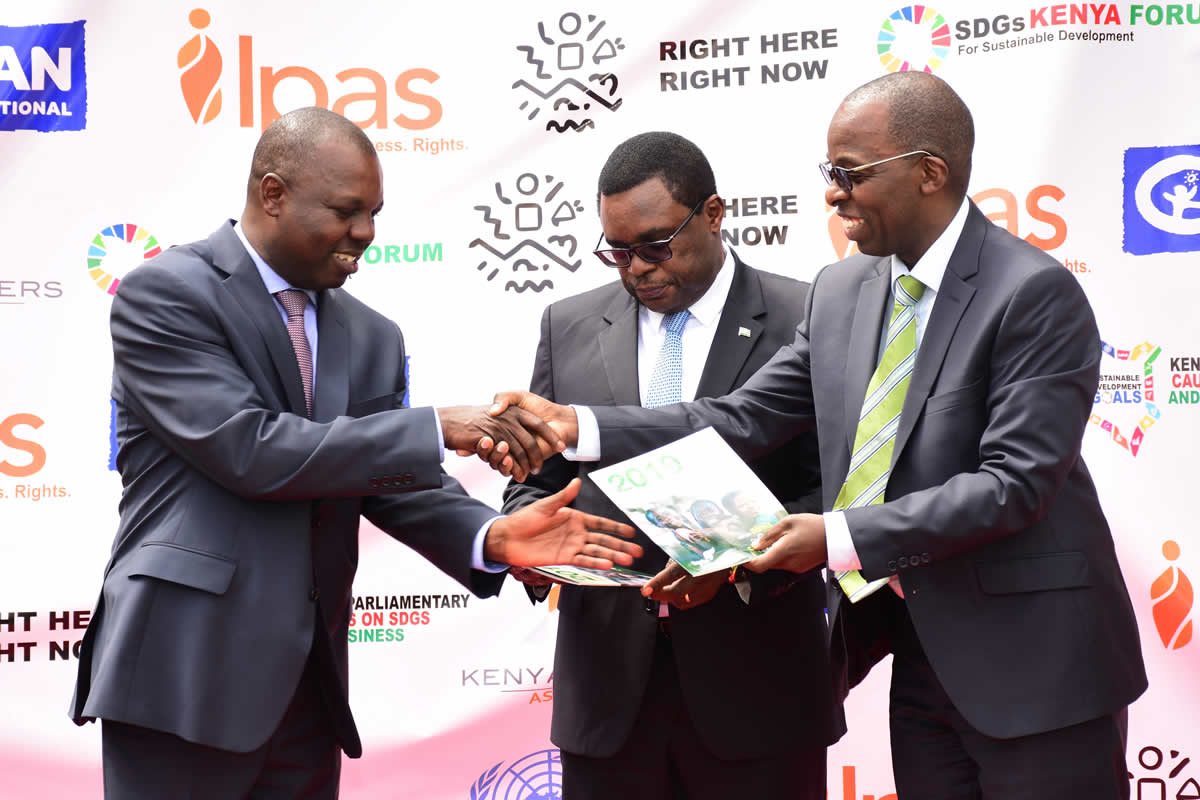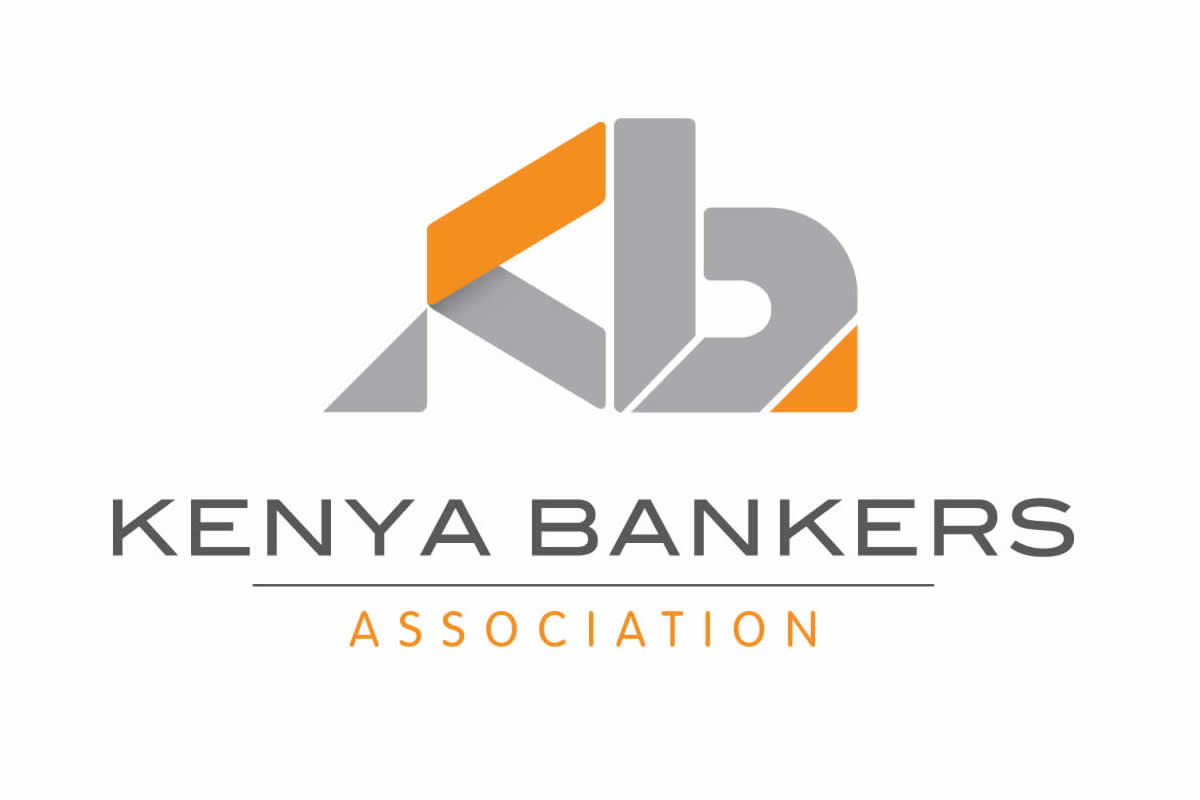Nairobi 19 June 2019 – Kenya’s banking industry has invested Kshs. 2.1 Billion in Corporate Social Responsibility (CSR) in 2018 and approximately Kshs. 6.7 Billion over the past three years, according to the 2019 Kenya Banking Industry Shared Value Report released today by the Kenya Bankers Association (KBA).
Education ranks first as the top social investment area for banks, followed by health and environment. Overall, banks have donated in excess of Kshs. 9 Billion since 2015 in CSR activities, which has contributed greatly to Kenya’s realization of the Sustainable Development Goals (SDGs).
Speaking at the release of the industry’s social responsibility report, KBA Governing Council Representative and KCB Bank Kenya Managing Director Samuel Makome reiterated the role the banking industry has played in creating shared value for the society. “Banks are heavily investing in engagements and activities that have a positive impact on the society, environment and economy,” he said. “In addition to the CSR investments, banks have spent more than Kshs. 3 Billion in cause-related sponsorships in areas such as sports. As you know, our athletes are the pride of Kenya and our global ambassadors of whom we are all very proud.”
In terms of contributing to Kenya’s overall economic growth, in the 2017/2018 financial year, the banking industry paid more than Kshs. 73 Billion in taxes to the National Government. In the same period, the KBA report found banks have invested Kshs. 39 Billion in employment creation through jobs and contracts which generated further revenue to fund the National Budget. Moreover, as at September 2018, banks lent a total of Kshs. 2.53 trillion to various sectors that drive the economy.
KBA CEO, Dr. Habil Olaka noted that as much as banks are making a greater contribution to the economy and society, there are hurdles faced by the industry, including the Banking (Amendment) Act, 2016, which introduced interest rate controls.
“The interest rate ceiling set by Parliament has negatively impacted private sector access to credit, which has led to an estimated 1.4 percent decline in GDP,” said Dr. Olaka. Notwithstanding a challenging operating environment for banks, the industry has championed innovative programs and have adopted new methods of lending.
“Banks have devised creative approaches to knock down some of the barriers that have led to difficulty in credit access for Micro, Small and Medium-sized Enterprises (MSMEs). Despite the interest rate caps, banks have been able to respond to credit needs through innovative approaches such as leveraging on the Movable Property Registry on ecitizen.go.ke,” he said.
The Registry which was introduced by the Movable Property Security Rights Acts, 2017 has aided banks to lend to individuals and SMEs with assets that are not land related.
“So far, over 183 thousand loans have been registered worth Kshs. 3.65 Trillion which is very promising,” added Dr. Olaka. “As further support, the Association has developed the Inuka Enterprise Program which we designed to de-risk MSMEs so that they can in turn access bank loans. More than 2,000 enterprises have already been reached through the program. Moreover, banks are leveraging on technology to improve the customer experience,” he said.
KBA released the Shared Value report during an Open Day that was hosted by the National Assembly in conjunction with the launch of the Parliamentary Caucus for SDGs and Business Strategic Plan.
About the Kenya Bankers Association:
KBA (www.kba.co.ke) was founded on 16th July 1962. Today, KBA is the financial sector’s leading advocacy group and banking industry umbrella body that represents total assets in excess of USD 40 billion. KBA has evolved and broadened its function to include advocacy on behalf of the banking industry, and championing financial sector development through strategic projects such as the launch of the industry’s first P2P digital payments platform PesaLink. In line with the Government’s policy on public-private partnerships, KBA and Central Bank of Kenya have implemented key projects such as modernization of the National Payments System through the Automated Clearing House, implementing the Real Time Gross Settlement System (RTGS), and the Kenya Credit Information Sharing Initiative. The KBA members are comprised of commercial banks and deposit taking microfinance banks.
For Media Inquiries please contact:
Ms. Nuru Mugambi, Director of Communications and Public Affairs, Kenya Bankers Association Phone: +254-20-2221704/2224014, Email: nmugambi@kba.co.ke
For Bank Customer Inquiries, please contact your bank directly.
For General Public Inquiries, please email Central Bank of Kenya at comms@centralbank.go.ke.



